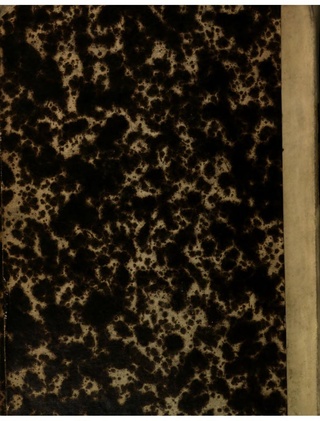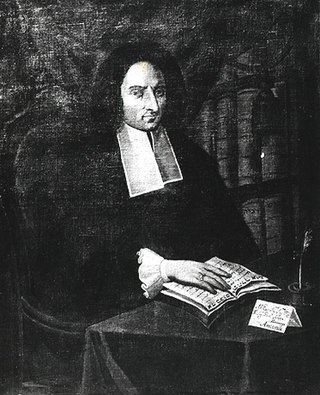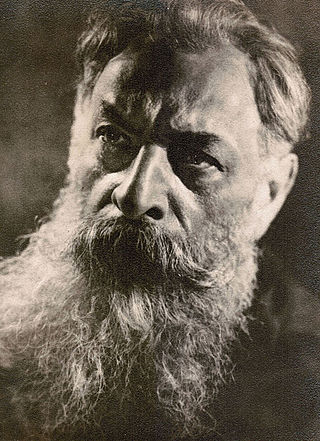Related Research Articles
Abraham Amigo was a noted rabbi of Sepharadi descent. He lived in Palestine during the middle of the seventeenth century CE. Abraham was a contemporary of Moses ben Nissim Benveniste, the younger, author of the responsa,Sefer Pene Mosheh.
Isaiah di Trani ben Mali (the Elder) (c. 1180 – c. 1250) (Hebrew: ישעיה בן מאלי הזקן דטראני), better known as the RID, was a prominent Italian Talmudist.

Menahem ben Benjamin Recanati was an Italian rabbi who was born and died in the city of Recanati, who devoted the chief part of his writings to the Kabbalah.

Judah ben Eliezer ha-Levi Minz, also known as Mahari Minz, was the most prominent Italian rabbi of his time. As his surname suggests, he immigrated around 1462 from Mainz to Italy. He officiated as rabbi of Padua for forty-seven years, during which time he had a great number of pupils, among whom were his son Abraham Minz, and the latter's son-in-law Meir Katzenellenbogen. In a dispute he had with Elia del Medigo, he was supported by Elijah Mizrachi.
Mordecai ben Abraham Crémieux was a rabbi at Aix, Provence. He was the author of Ma'amar Mordekhai, a commentary on the Shulḥan Arukh, Oraḥ Ḥayyim, in two parts. He also financed the first siddur according to the Provençal rite.
Moses ben Mordecai Zacuto, also known by the Hebrew acronym RaMa"Z, was a rabbi, Kabbalist, and poet. Zacuto, who was born into a Portuguese Marrano family in Amsterdam, studied Jewish subjects under Saul Levi Morteira. He also studied secular subjects, such as the Latin language. As a pupil of Morteira, he may also have been, as a youth still in Amsterdam, a fellow student of Baruch Spinoza.
Abraham ben Mordecai Galante was an Italian kabbalist born in Rome at the beginning of the 16th century. Abraham, like his father Mordecai and his brother Moses of Safed, is represented by his contemporaries as a man of high character who led a holy life. Being wealthy, he erected a splendid mausoleum over the tomb of Simon ben Yoḥai at Meron, which is still admired.
Naphtali Hirsch ben Eliezer Treves was a kabalist and Rabbinic scholar of the 16th century who officiated as Hazzan and rabbinic judge in Frankfort-on-the-Main. He was the author of Mala Ha'aretz Deah (1560), a famous cabalistic commentary on the Siddur (prayer-book), printed at Thüngen by his son Rav Eliezer Treves, Chief Rabbi of Frankfurt, and also of Naftule Elokim, an index to Bahya ben Asher's commentary on the Pentateuch. The preface to the Naftule Elokim consists partly of the result of private studies and partly of quotations from other cabalistic works. Treves also wrote, a supercommentary on Rashi, which is still extant. Naphtali Hirz engaged in disputations with Christian scholars, and he made comments on the pronunciation of German language. He is especially important for his accounts of Jewish customs and ceremonies.

Samson Morpurgo ben Joshua Moses was an Italian rabbi, physician, and liturgist.
Joseph ben Samuel Bonfils was a French rabbi, Talmudist, Bible commentator, and payyetan of the mid-eleventh century. He is also known by the Hebrew name Yosef Tov Elem, a Hebrew translation from the French name "Bonfils."

Menahem Azariah da Fano was an Italian rabbi, Talmudist, and Kabbalist.
Joseph ben Mordechai Gershon HaKohen Ka"tz was a kohen by birth, a rabbi and Talmudist, who began his studies in the Talmud at an early age, and became the dean at a yeshiva founded for him by his father-in-law. His views on religious questions were widely sought, while Solomon Luria was one of his correspondents.
Aaron Selig ben Moses of Zolkiev was a Polish Jewish author who flourished in the seventeenth century. He wrote "'Amude Sheba'" containing: (1) Commentaries and glosses on the old and the new Zohar, explaining the foreign words therein; (2) treatises not included in the old Zohar; (3) references where commentaries on the treatises of the old and the new Zohar can be found; (4) similar indications of the book "Tiḳḳunim"; (5) remarks on the style of the Zohar. The work was published at Cracow in 1637.
Rabbi Elazar Rokeach, also known as Eleazar ben Samuel, was the author of Maaseh Rokeach, and Chief Rabbi of Amsterdam.
Johanan ben Aaron ben Nathanael Luria was an Alsatian Talmudist. He lived successively at Niedernheim and Strasburg at the end of the fifteenth century and in the beginning of the sixteenth. After having studied for many years in German yeshivot, he returned to Alsace and settled in Strasburg, where he founded a yeshiva by permission of the government. Luria was the author of an ethical work entitled "Hadrakah" and of "Meshibat Nefesh", an aggadic and mystical commentary on the Pentateuch, founded on Rashi. To this commentary was appended a dissertation in which Luria refuted the arguments advanced by Christians against Judaism.
Benjamin Ze'ev Wolf ben Solomon of Prerau was a Moravian rabbi and writer.

Abraham Kahana was a Russian-born Biblical scholar, biographer, historian, translator, and librarian.
Mordecai Jonah Rosenfeld, also known by the acronym Mishuv was a Galician religious leader and Hebrew writer.
Abraham ben Moses Schedel was a Bohemian printer and corrector.
Jacob Meshullam ben Mordecai Ze'ev Ornstein was a Galician rabbinical authority, who served as rabbi of Lemberg for over thirty years.
References
- ↑ Ginzberg, Louis (1901). "Aaron Moses ben Mordecai". Jewish Encyclopedia , Vol. 1, p. 19. Funk & Wagnalls Company.
- ↑ Adler, Cyrus; Singer, Isidore, eds. (1918). "Aaron Moses ben Mordecai". The Jewish Encyclopedia: A Descriptive Record of the History, Religion, Literature, and Customs of the Jewish People from the Earliest Times to the Present Day. Vol. 1. Funk & Wagnalls. p. 19.
![]() This article incorporates text from a publication now in the public domain : Singer, Isidore; et al., eds. (1901–1906). "Aaron Moses ben Mordecai". The Jewish Encyclopedia . New York: Funk & Wagnalls.
This article incorporates text from a publication now in the public domain : Singer, Isidore; et al., eds. (1901–1906). "Aaron Moses ben Mordecai". The Jewish Encyclopedia . New York: Funk & Wagnalls.